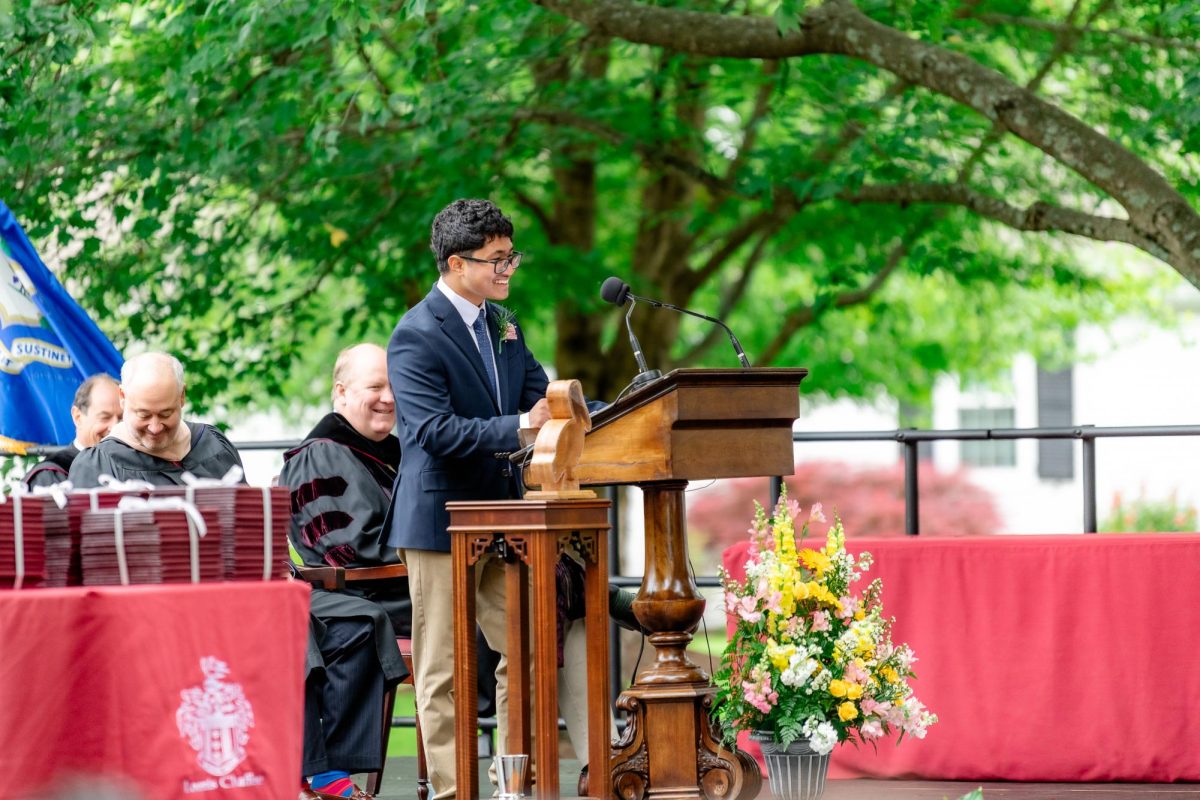The pungent scent of smoke from the grill wafts through the air from across the lawn, clinging to our Class of 2019 t-shirts. Upperclassmen swim in a sea of freshmen, hands held high in hopes of attracting the attention of their counselees. Groups of students cluster awkwardly on Longman’s front yard, seating themselves on the cool grass of late summer evening. Name games are played, highs and lows are shared. After a class photo, we chase after our Peer Counselors, embarking on our first Loomis Chaffee scavenger hunt.
Many Loomis students who arrived as freshmen can likely recount a similar experience, one of several events they would attend with their Peer Counselors. But whether it be meeting with their counselees or working behind the scenes, what does the job of a Peer Counselor really entail? Every Peer Counselor is responsible for a group of freshmen, a typical group consists of two Peer Counselors and around 8-10 freshmen. Peer Counselors organize multiple events for the freshmen, including the class barbeque, ropes course challenge and the dodgeball tournament. All these activities help freshmen meet new people as well as form a bond with an upperclassman who they can trust and talk to. Peer Counselors don’t solely organize these activities for fun. It also allows them to reach out to underclassmen in a casual and easygoing setting. Often, incoming freshmen don’t only struggle to navigate campus, but they can also struggle to navigate their transition into Loomis. Having the help and advice of an upperclassman can mitigate these difficulties. These Peer Counselors serve as both advisers and leaders. Senior and Peer Counselor Jenna Ryu said, “I think our most important job is to set an example for the freshmen by demonstrating the kinds of [qualities] a Loomis student should possess.”
Not only do Peer Counselors work with the freshmen class, but they are also leaders within the greater Loomis community. Throughout the year, the Peer Counseling Network holds several meetings to discuss varying issues and incidents on and off campus. Many of the topics chosen are relevant to life on the island, though they might not always be spoken about openly on campus. Their most recent discussion was on sensitivity, respect and political correctness, in which the Peer Counselors split into smaller groups to create a more intimate and individualized atmosphere. Past meetings have focused on issues like stress, peer pressure and diversity. By holding these meetings, the Peer Counseling Network has encouraged the open dialogue of relevant topics in a safe environment with the inclusion of the entire community. “We give everyone a voice,” Jenna said, “And we talk about a lot of controversial topics.” The Peer Counseling Network continues to be an important advocate for pushing boundaries and opening minds.
So, if in any way this article still hasn’t inspired you to become a Peer Counselor, then it might not be for you. But if you want to be a leader in the community and you like helping underclassmen, here are some requirements: you must be an incoming junior or senior and you must attend at least one of the open meetings. You also have to fill out an application, which will ask questions such as why you want to become a Peer Counselor, and what kinds of things you would want to do. Currently there are about 17 Peer Counselors who attend weekly meetings, and who must also attend open discussions and several freshman class events. Becoming a Peer Counselor is a meaningful leadership experience, and is a great opportunity to get involved in the community and meet a range of students.






